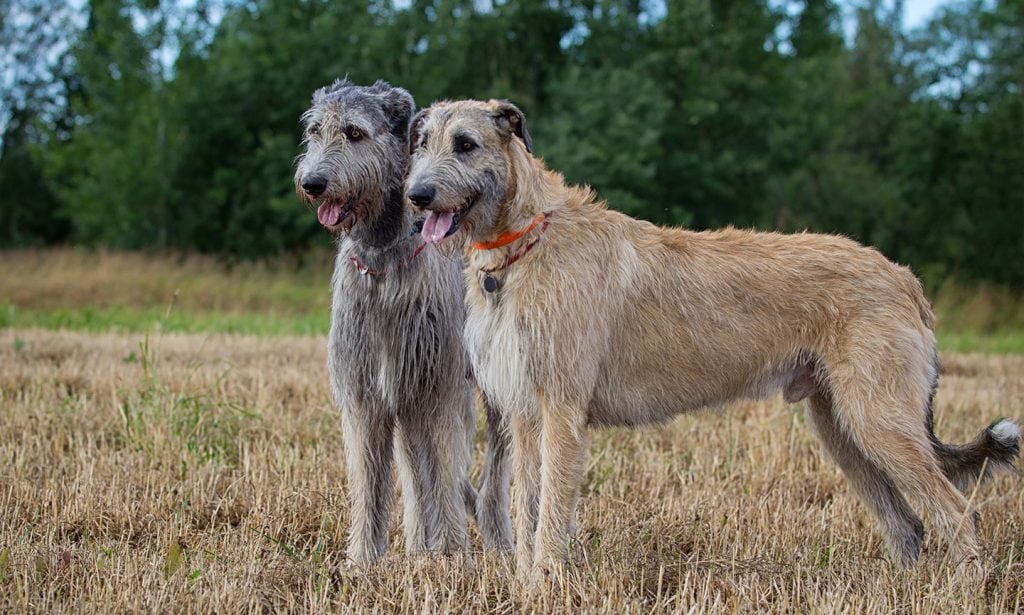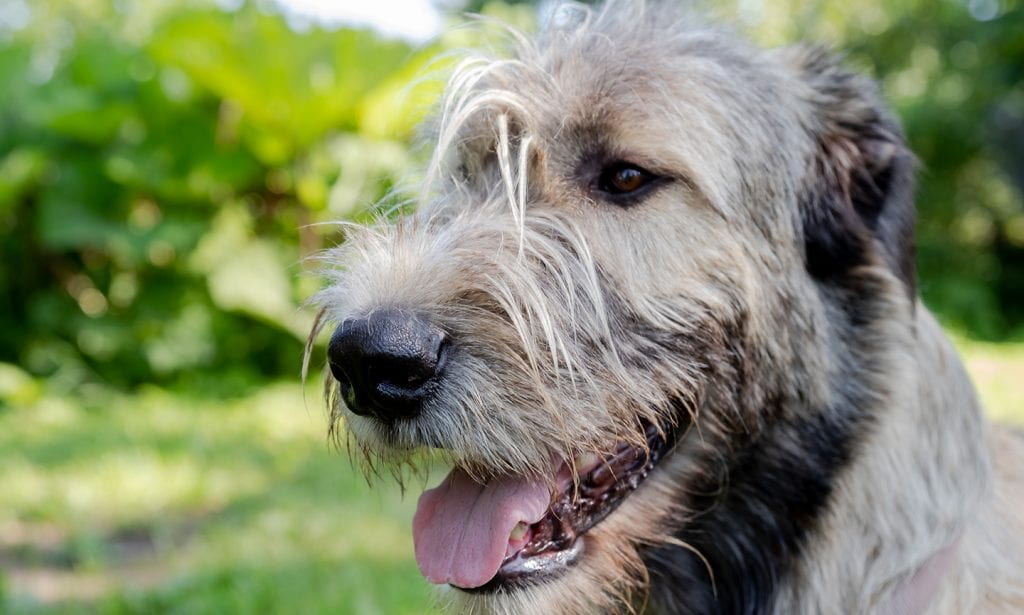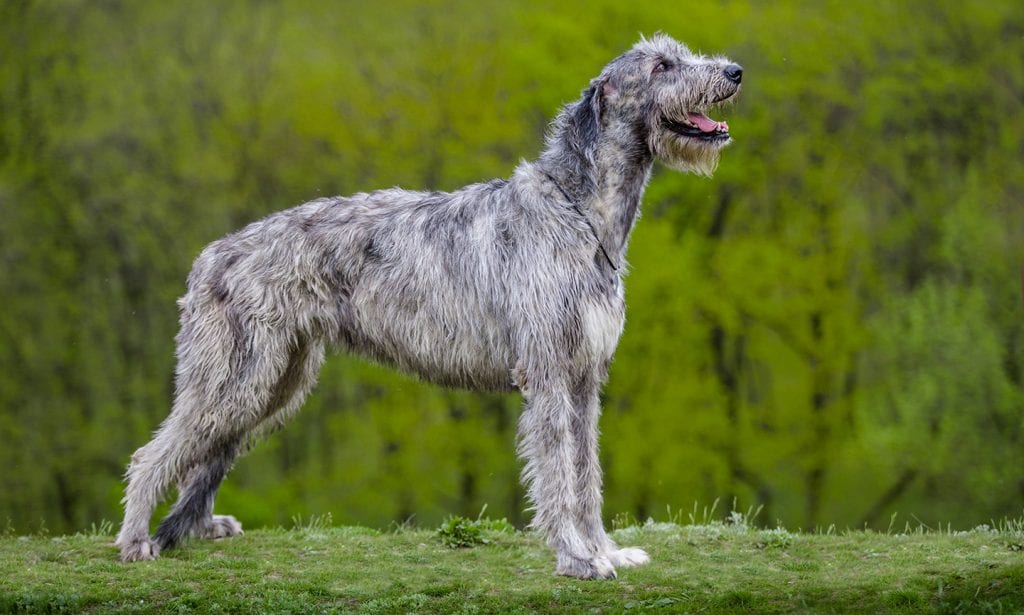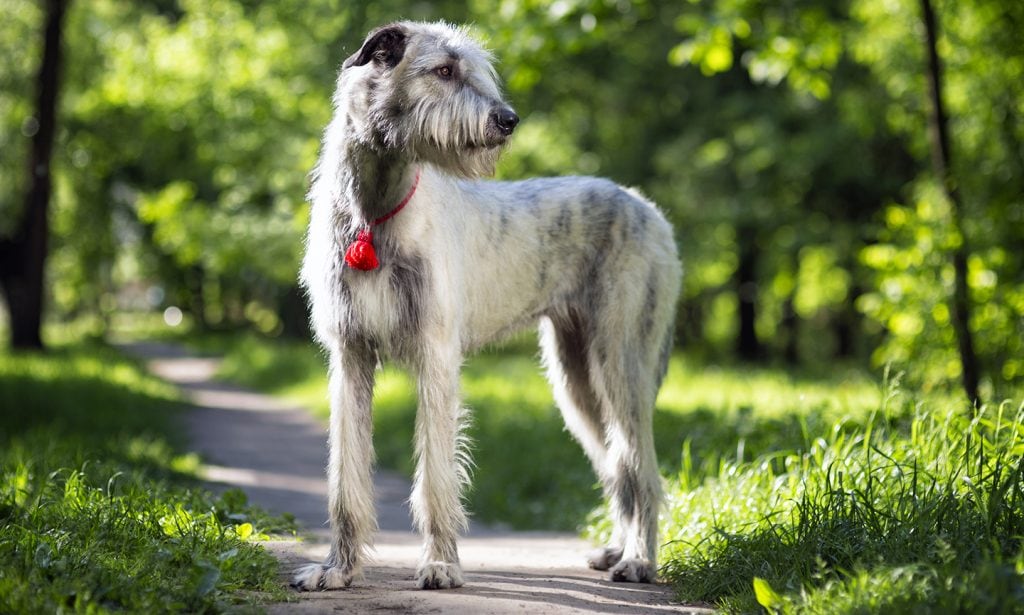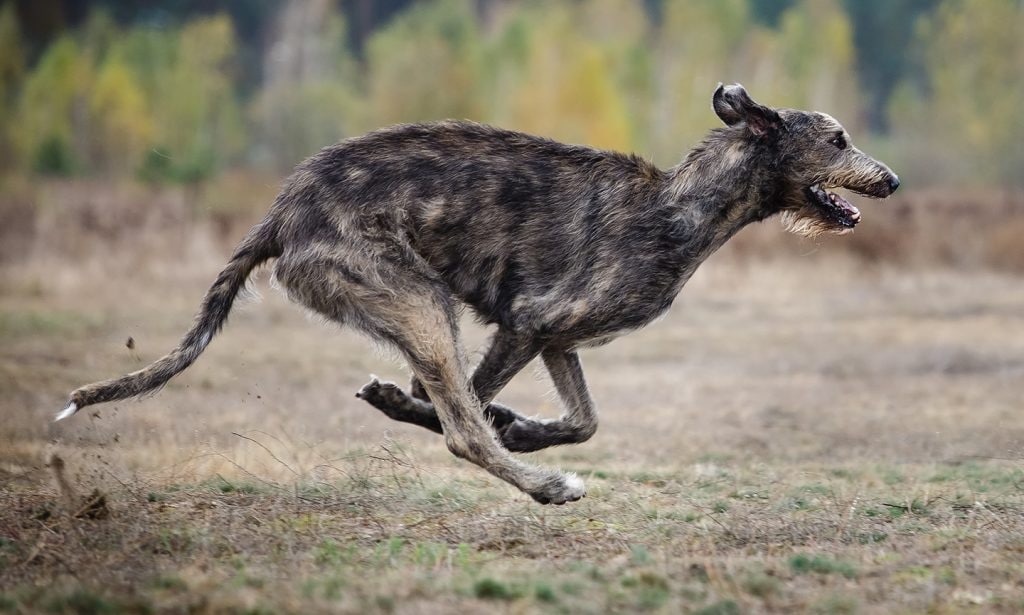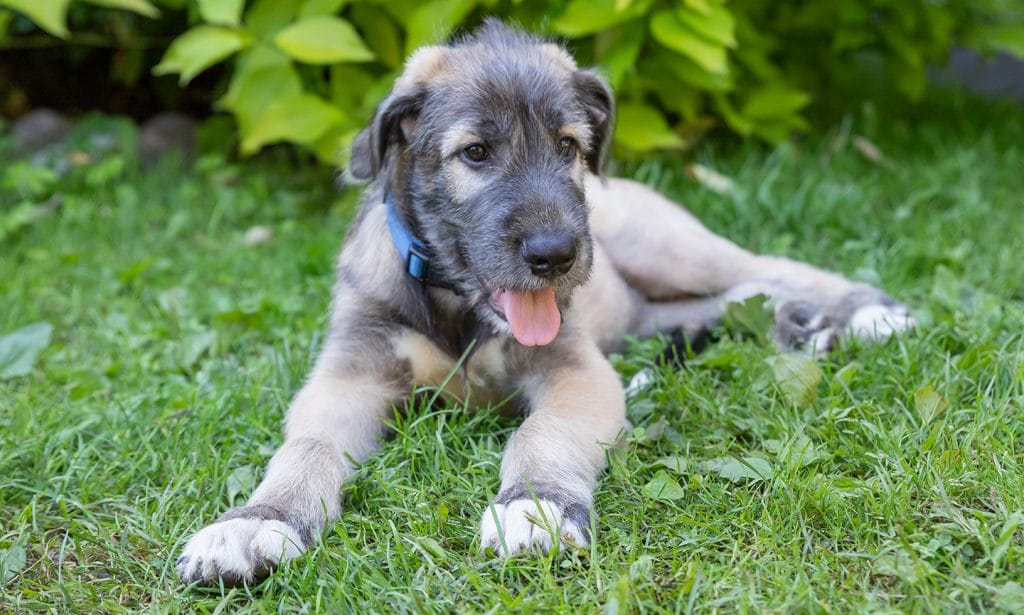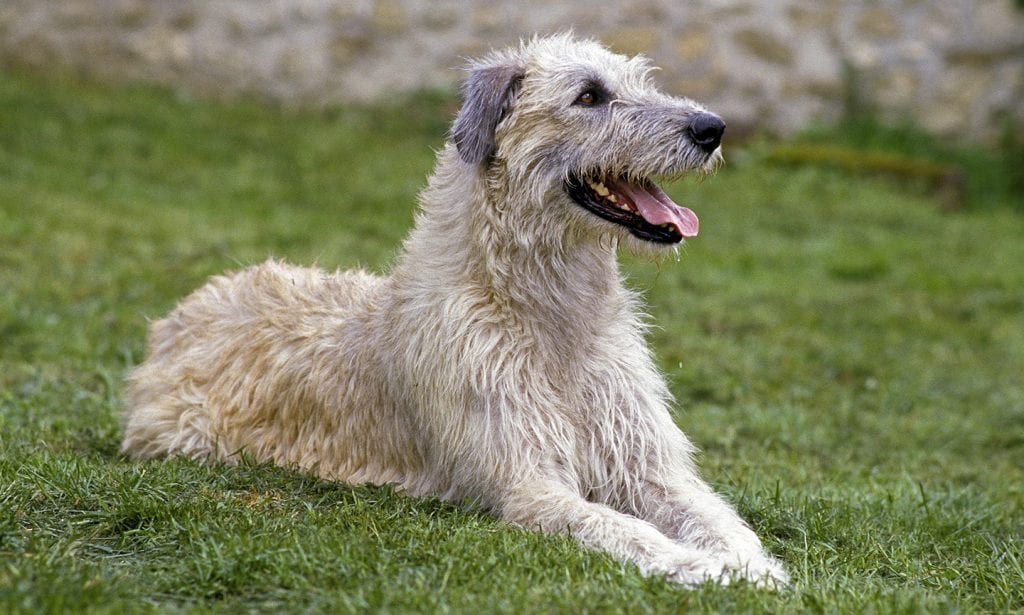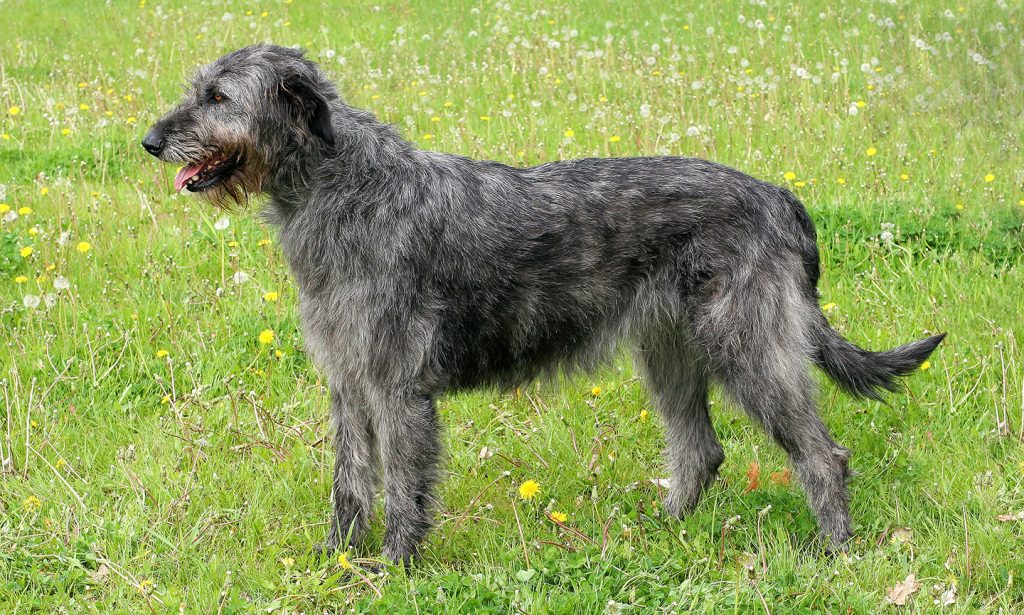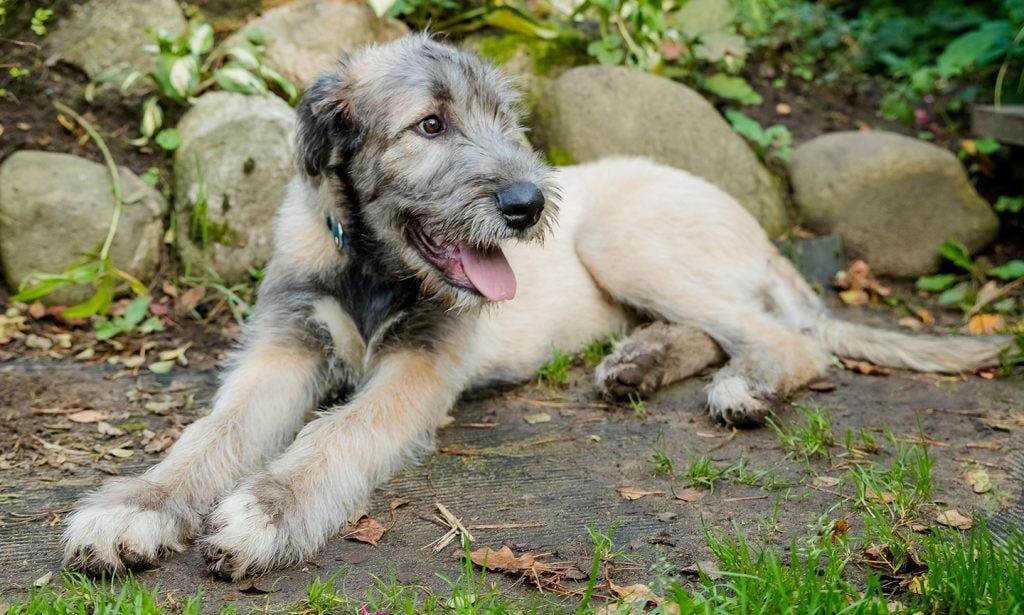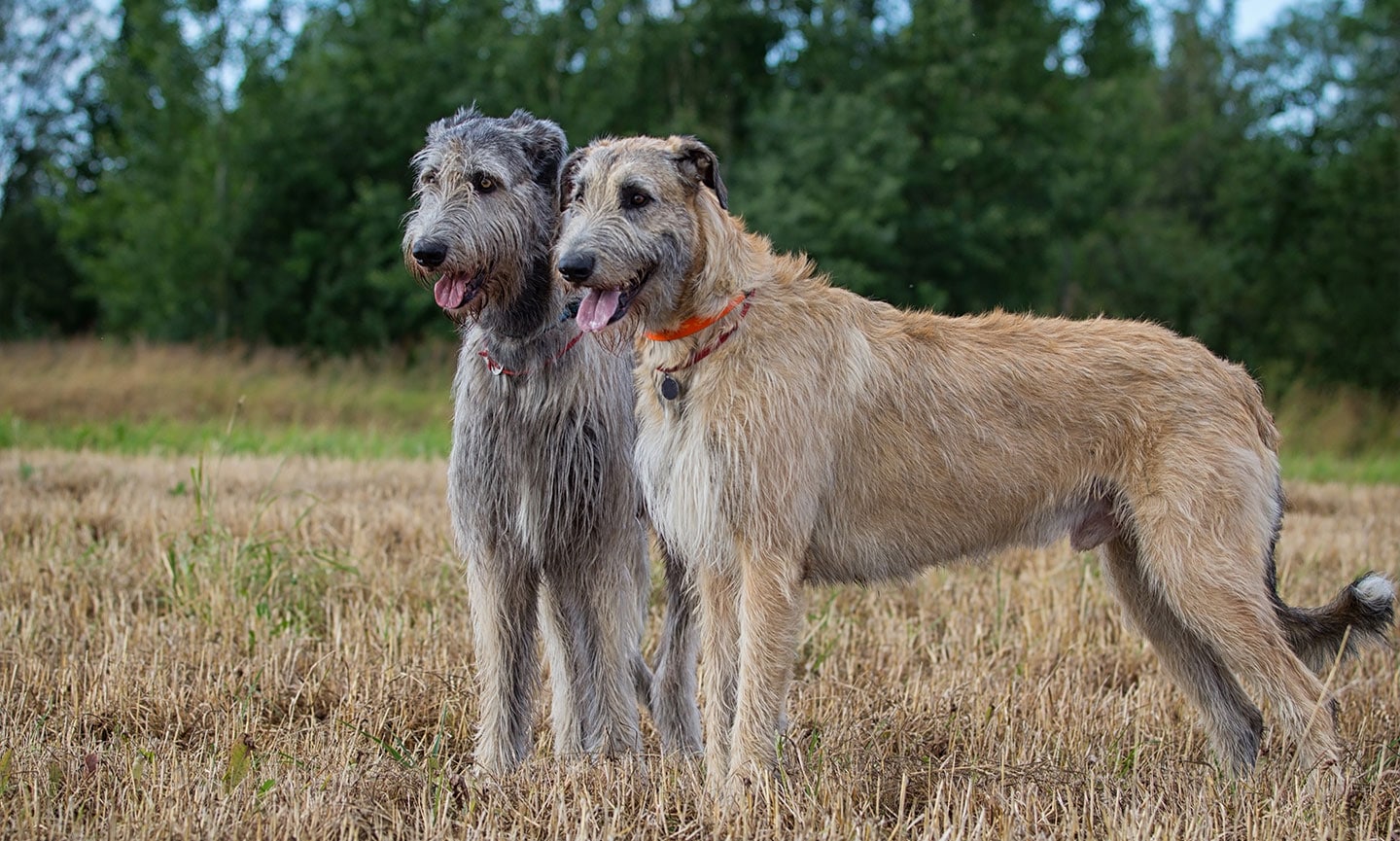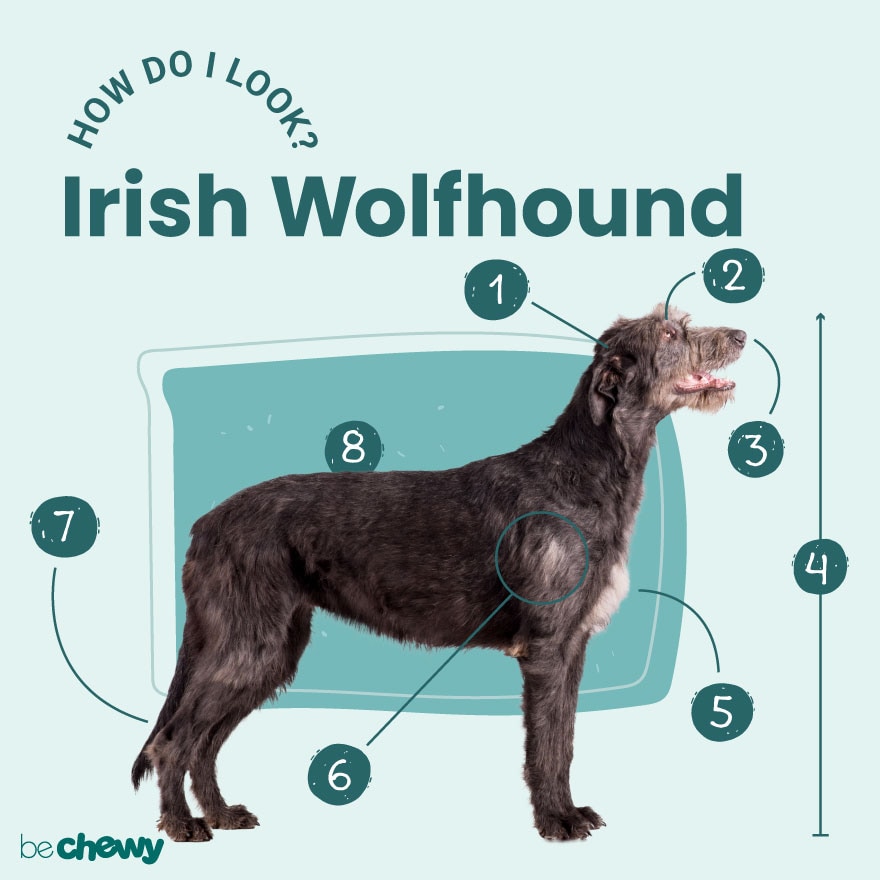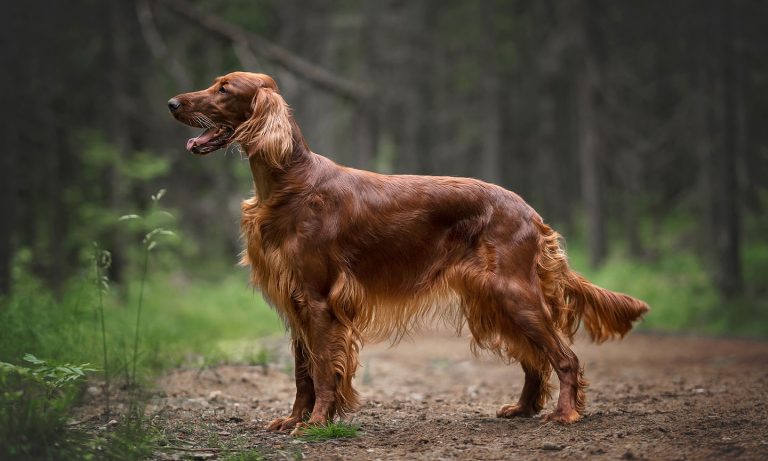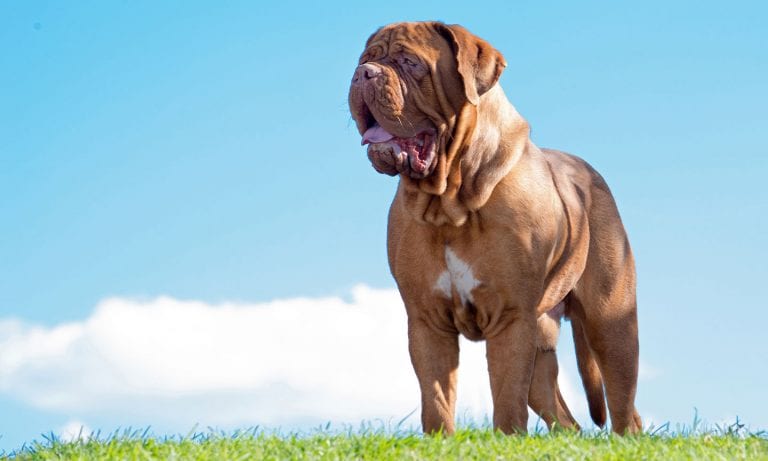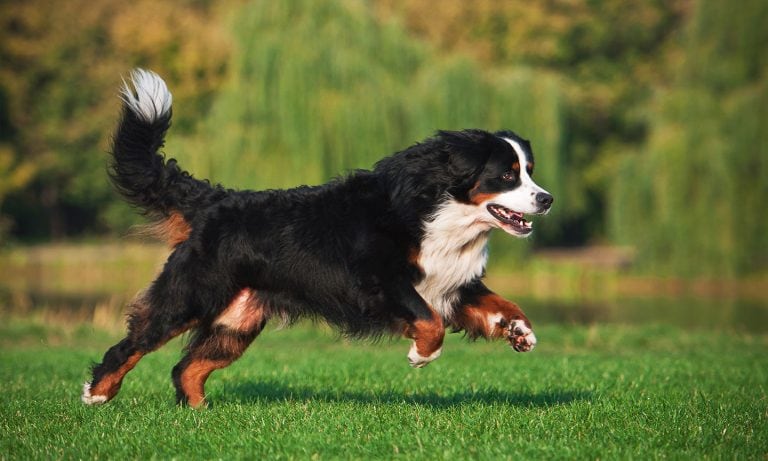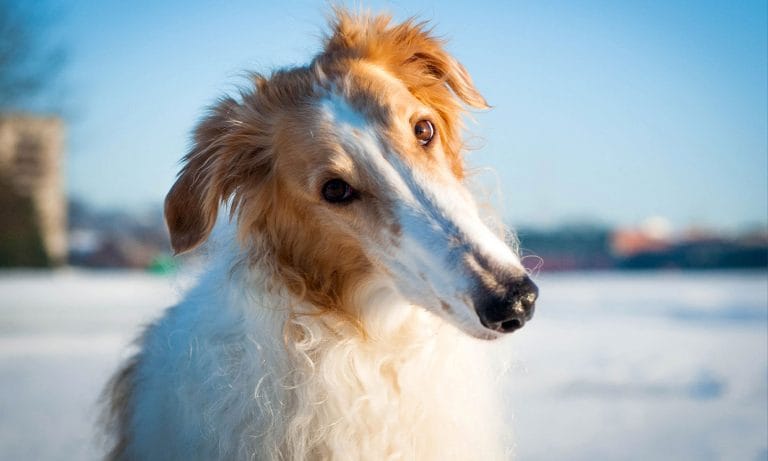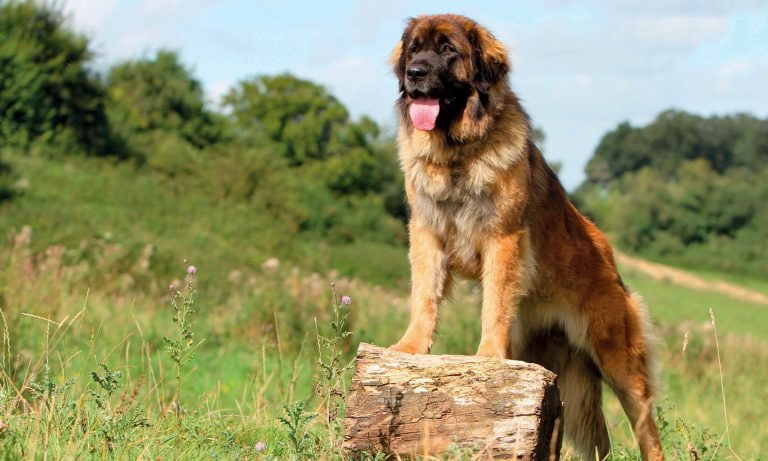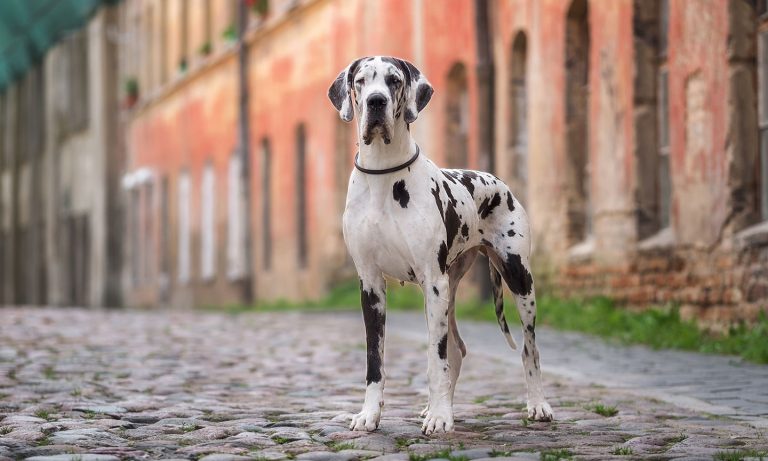Have you ever imagined seeing eye-to-eye with your dog—literally? With the easy-going Irish Wolfhound, you’ll be as close to it as possible. This is the tallest breed of dog, growing to a minimum of 30 inches tall, giving you an extra good look at their adoring gaze. (Your days of cleaning the coffee table are over, too—Irish Wolfhounds are big enough to dust it with their tails.) With their significant stature comes an extra-large helping of affection, loyalty and independence. So go ahead and upgrade to that two-piece sectional sofa you’ve had your eye on—you and your Irish Wolfhound will both need some space to stretch out and recharge after a day of playing and hanging out with your bestie.
Breed Snapshot
Temperament:
AffectionateLoyalIndependentFriendlyCoat Color:
GrayBrindleRedBlackWhiteFawn
Best For
Irish Wolfhounds are tall. Really tall. They need ample space because of their imposing size—otherwise, they're likely to bump into and break fragile items. They thrive in spacious homes with understanding pet parents familiar with the challenges of caring for extra-large dog breeds.
Irish Wolfhound Temperament
If you’ve ever dreamed of being friends with Chewbacca, you’re in luck: Being BFFs with an Irish Wolfhound dog, the gentle giant of the canine world, might be the next best thing. These pups are kind, loving and as loyal to you as Chewy was to Han Solo. But despite their devotion, their sighthound instincts sometimes convince them that their agenda is more important than yours, like napping, counter surfing, or watching squirrels.
Trained Irish Wolfhounds can adapt to life with other household pets. Due to their hunting instinct, some may be less trustworthy around cats—it depends on the individual dog and their training. Irish Wolfhounds generally love interacting with children but are better suited for households with older children simply due to their size—your pup may accidentally knock a small child over while playing.
This calm breed is athletic and loves to run—but they can also be talented couch potatoes if you let them.
How to Care for a Irish Wolfhound
The Irish Wolfhound is a whole lot of dog—even Irish Wolfhound puppies are big compared to most other breeds. Their size impacts everything from diet to training, and pet parents should start training when they’re young while they’re still a manageable size. But don’t worry: Their grooming needs aren’t as outsized as their bodies, and they tend to be light shedders.
Irish Wolfhound Health
Irish Wolfhounds have a life expectancy of 6 to 8 years, and there are several health issues to watch out for to keep your dog healthy. It’s also important to know that veterinary care for a dog of this size can be expensive. These gentle giants are worth the extra care, but if you do bring one home, keep an eye out for these concerns:
- Bloat: Irish Wolfhounds are prone to gastric dilatation-volvulus, also known as bloat, which often affects giant or deep-chested dog breeds. When bloat occurs, the dog’s stomach may twist, causing a life-threatening emergency that typically requires surgery to correct. Symptoms typically include a distended stomach, restlessness, and dry heaving or retching. Your vet may recommend a prophylactic gastropexy to tack the stomach to the body wall during spaying/neutering to hopefully prevent it from being able to twist and create a bloat later in life.
- Liver Shunts: This is an abnormal series of blood vessels that circumnavigate a dog’s liver and can cause stunted growth, poor muscle development, disorientation and seizures. There is no genetic screening test for liver shunts in dogs. Still, you can manage the condition with diet modifications, antibiotics, and medications.
- Bone Cancer: More formally known as osteosarcoma, bone cancer is common in Irish Wolfhounds. Treatment often includes surgery, chemotherapy, and radiation.
- >Hip and Elbow Dysplasia: This condition occurs when the joints don’t form properly, resulting in lameness, pain, and arthritis. Treatment options include joint supplements, pain medication, and, in severe cases, surgery.
- Dilated Cardiomyopathy (DCM): This potentially genetic heart condition causes the heart to enlarge and the walls to weaken and thin. Treatment is typically daily medication.
Irish Wolfhound History
When it comes to the Irish Wolfhound’s history, the name says it all. They’re hounds, hunted wolves and are from Ireland. But to fill in a few holes with specifics, the Irish Wolfhound is an ancient breed, honored for centuries in Irish folklore. Their size and stature made them excellent accomplices on quests, battles and general adventuring.
During the 1400s, they became particularly notable as wolf hunters in Ireland. However, wolves were eradicated in the country by the 1700s. Subsequently, the population of Irish Wolfhounds diminished to low levels. The Irish Wolfhound breed was in danger of extinction. Thankfully, there was renewed interest in preserving the breed in the 1800s.
The American Kennel Club recognized the Irish Wolfhound breed in 1897, and the Irish Wolfhound Club of America was established in 1926. Irish Wolfhounds rank 74 on the AKC’s list of most popular dog breeds.
Want to add an Irish Wolfhound to your family? You can find a list of reputable breeders on the American Kennel Club’s website. On average, Irish Wolfhound puppies will cost anywhere from $1,500 to $3,500 for a pup. But for that, you usually get a dog screened for health and temperament issues, and they might even come with pedigree papers. You can also contact Irish Wolfhound rescue organizations to adopt, keep an eye out for the breed at your local animal shelter, or search Chewy’s database of adoptable dogs in your area.
FAQs
Do Irish Wolfhounds shed?
Yes, Irish Wolfhounds shed lightly year-round. While they shed an average amount for a double-coated breed, Irish Wolfhounds aren’t known for heavy seasonal shedding.
How long do Irish Wolfhounds live?
The average life expectancy of an Irish Wolfhound is 6 to 8 years. Like many large and giant dog breeds, their lifespans are often shorter than smaller breeds.
How big do Irish Wolfhounds get?
Irish Wolfhounds get very, very big. The height of a male Irish Wolfhound is a minimum of 32 inches, and females stand a minimum of 30 inches tall. They are the tallest dog breed recognized by the American Kennel Club. A male Irish Wolfhound weighs at least 120 pounds, and females weigh at least 105 pounds.
Are Irish Wolfhounds good pets?
Yes, Irish Wolfhounds are good pets. They generally have kind and devoted personalities, and they love family life. While they are often good with children, the sheer size of an Irish Wolfhound can be a concern for families with small children.
Are Irish Wolfhounds aggressive?
Irish Wolfhounds aren’t known for being aggressive despite their impressive size.
What are the most popular Irish Wolfhound names?
Some of the most popular Irish Wolfhound names reach back into Irish mythology and include Aengus, Aileen, Balor, Brigid, Cian, Danu, Deirdre, Fionnuala and Lir. Get more dog names here.
What are the most common Irish Wolfhounds mixes?
The most common Irish Wolfhound mixes are:
- Irish Wolfhound-Poodle> mix (Irish Wolfoodle)
- Irish Wolfhound-Great Dane mix (Irish Dane)
- Irish Wolfhound-German Shepherd mix (Irish Shepherd)
- Irish Wolfhound-Golden Retriever mix (Irish Retriever)
- Irish Wolfhound-Mastiff mix (Irish Mastiff)
- Irish Wolfhound-Great Pyrenees mix (Great Wolfhound)
>Note: These are not purebred dogs but mixed breeds.
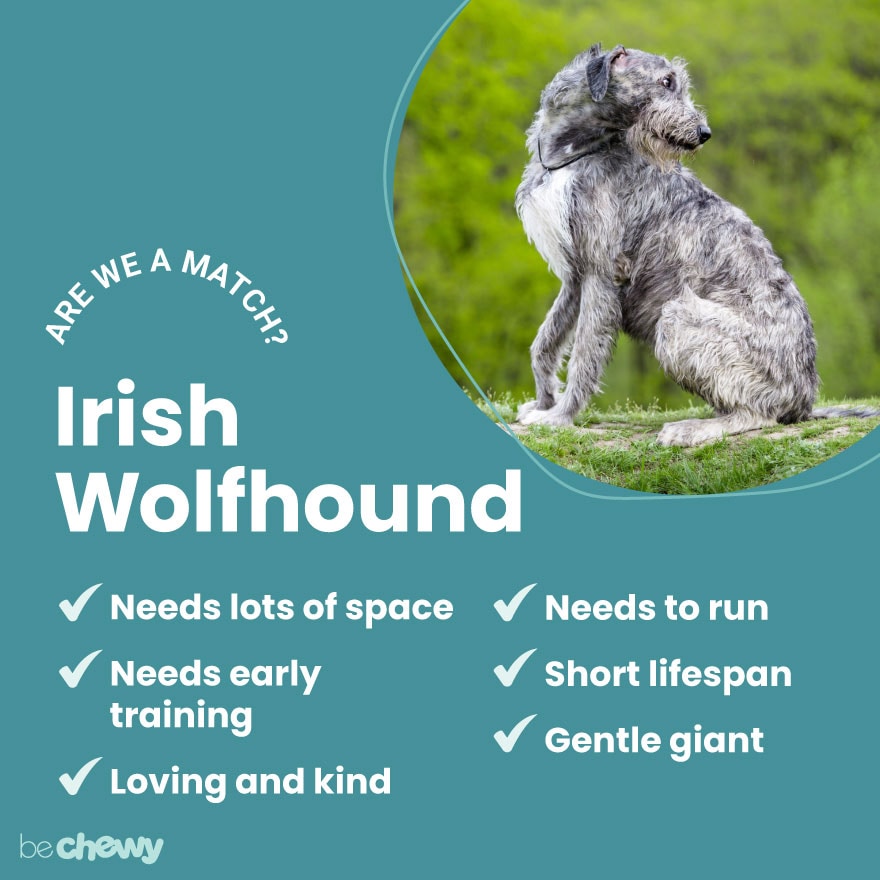
Top Takeaways
The Irish Wolfhound is a gentle giant known for its immense size and calm demeanor. Despite their imposing stature, they’re affectionate and good-natured companions.
Expert input provided by veterinarian Dr. Melanie Mercer, DVM and certified dog trainer Bree Reza, CPDT-KA, of 42 Walks Dog Training.
Breed characteristic ratings provided by veterinarian Dr. Sarah J. Wooten, DVM, CVJ, a veterinarian at Sheep Draw Veterinary Hospital in Greeley, Colorado; dog trainer and behavior consultant Irith Bloom, CPDT-KSA, CBCC-KA, CDBC, owner of The Sophisticated Dog, LLC, in Los Angeles; and certified animal behavior consultant Amy Shojai, CABC, in Sherman, Texas.
The health content was medically reviewed by Chewy vets.

Search for Adoptable Irish Wolfhounds Near You
Female Names
- Keeva
- Clover
- Molly
- Maeve
- Winnie
- Willow
- Luna
- Rosie
- Bailey
- Fiona
Male Names
- Finnegan
- Fergus
- Seamus
- Odin
- Murphy
- Finn
- Tucker
- Murphy
- Angus
- Whiskey
Share:
